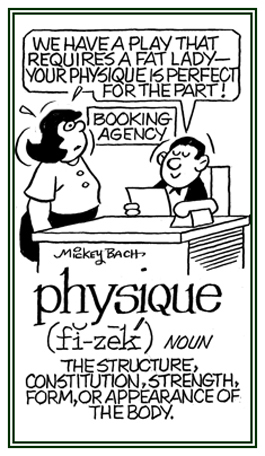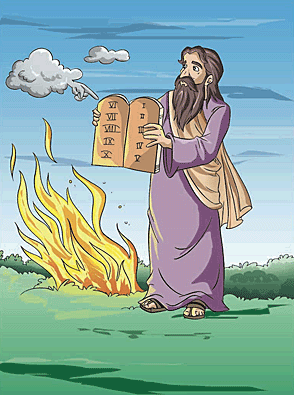physic-, physico-, physi-, physio-, phy-
(Greek: nature, natural, inborn [to make grow, to produce])
2. Someone who is competent and qualified to administer physiotherapy.
2. The treatment of pain, disease, or injury by physical means other than with medical, surgical, or radiologic measures.
3. The treatment of injuries and physical disabilities by a trained person under the supervision of a specialist in physical medicine.
2. A physical or bodily structure: The physiques of athletes are obviously much better than those who don't exercise.
3. Etymology: from Greek physikos, "of nature"; from Latin physicus, "physical".

Go to this Word A Day Revisited Index
so you can see more of Mickey Bach's cartoons.
Examples of physitheism in action include an ancient Greek or Roman god that assumed the form of an animal or when God spoke to Moses from the burning bush.

First, Moses while taking care of a flock of sheep near Mt. Horeb, "the angel of the Lord appeared unto him in a flame of fire out of the midst of a bush; and he looked, and, behold, the bush burned with fire, and the bush was not consumed." (Exodus 3:2)
Later, "And mount Sinai was altogether on a smoke, because the Lord descended upon it in fire: and the smoke thereof ascended as the smoke of a furnace, and the whole mount quaked greatly." (Exodus 19:18)
It was at Mt. Sinai that God presented the Ten Commandments to Moses.
Based on these quotations from the Old Testament Bible, the image above is only a representation of the two separate occurrences; however, it still illustrates physitheism.


